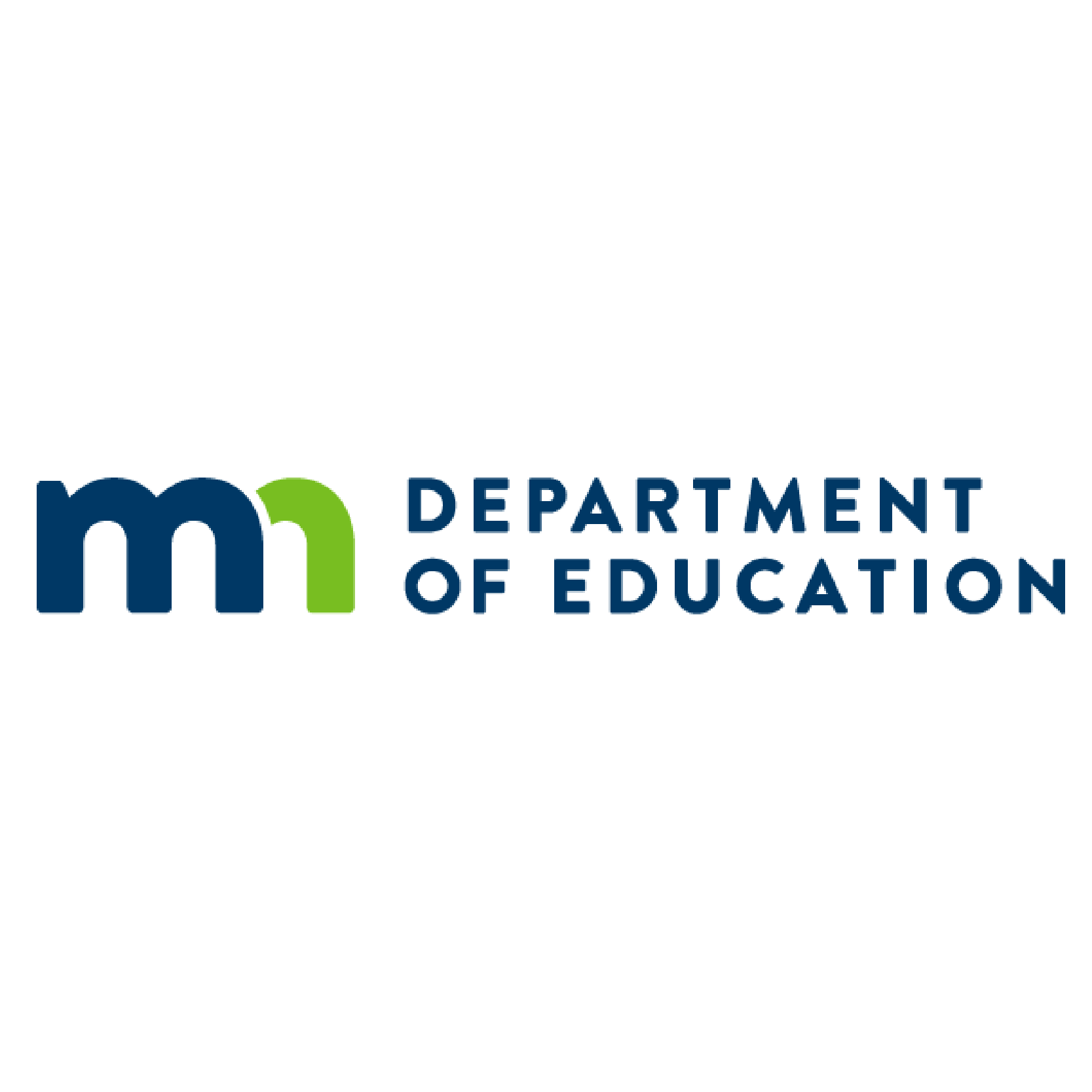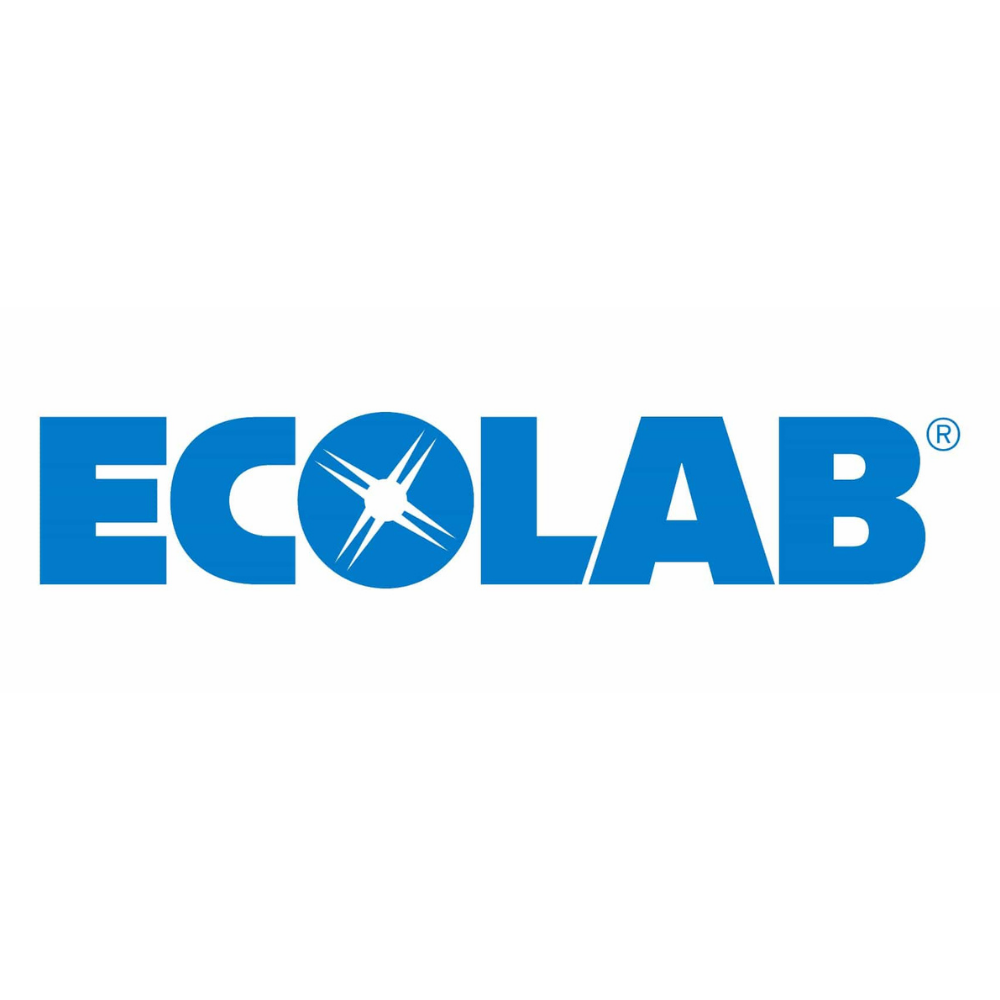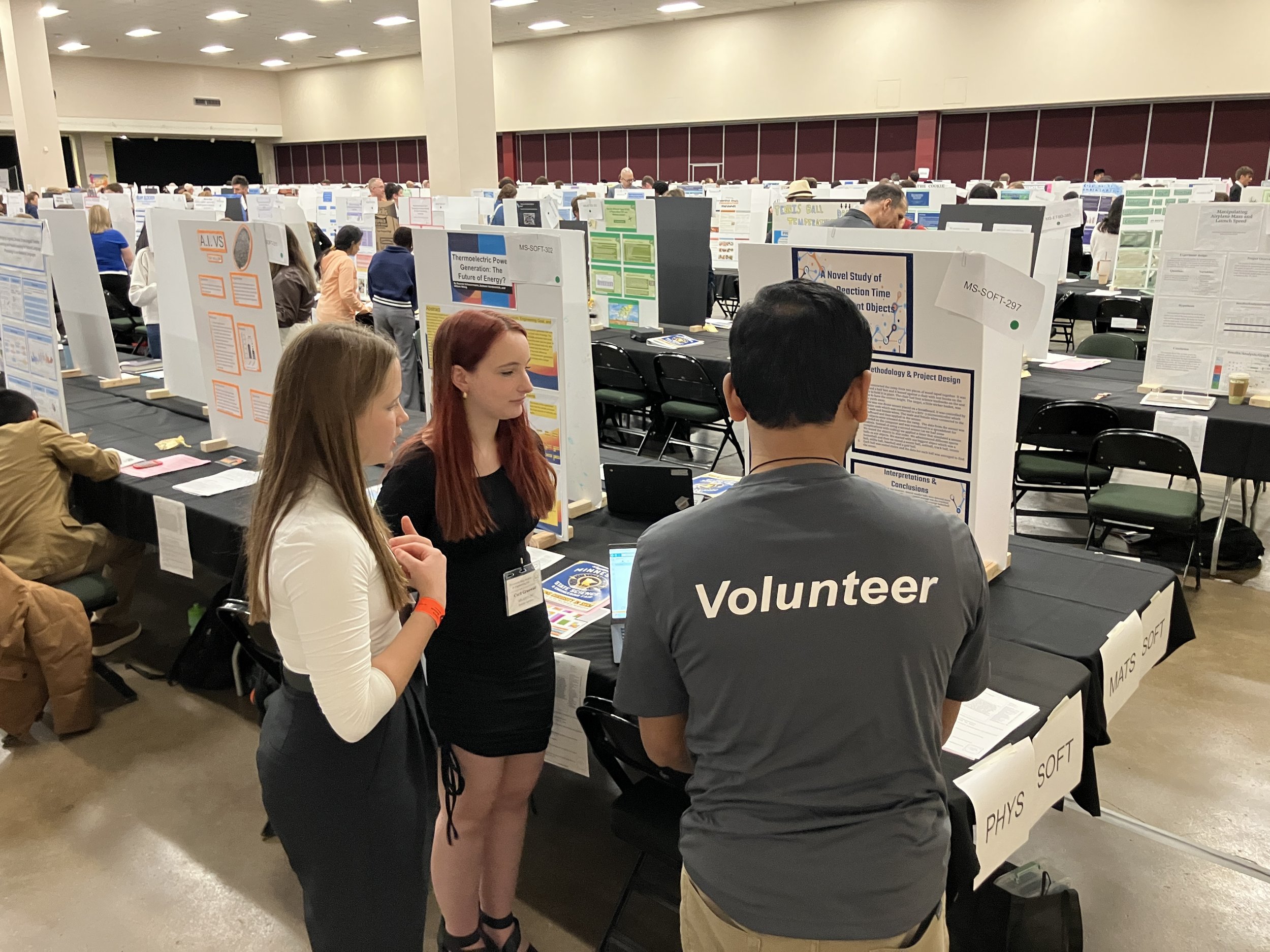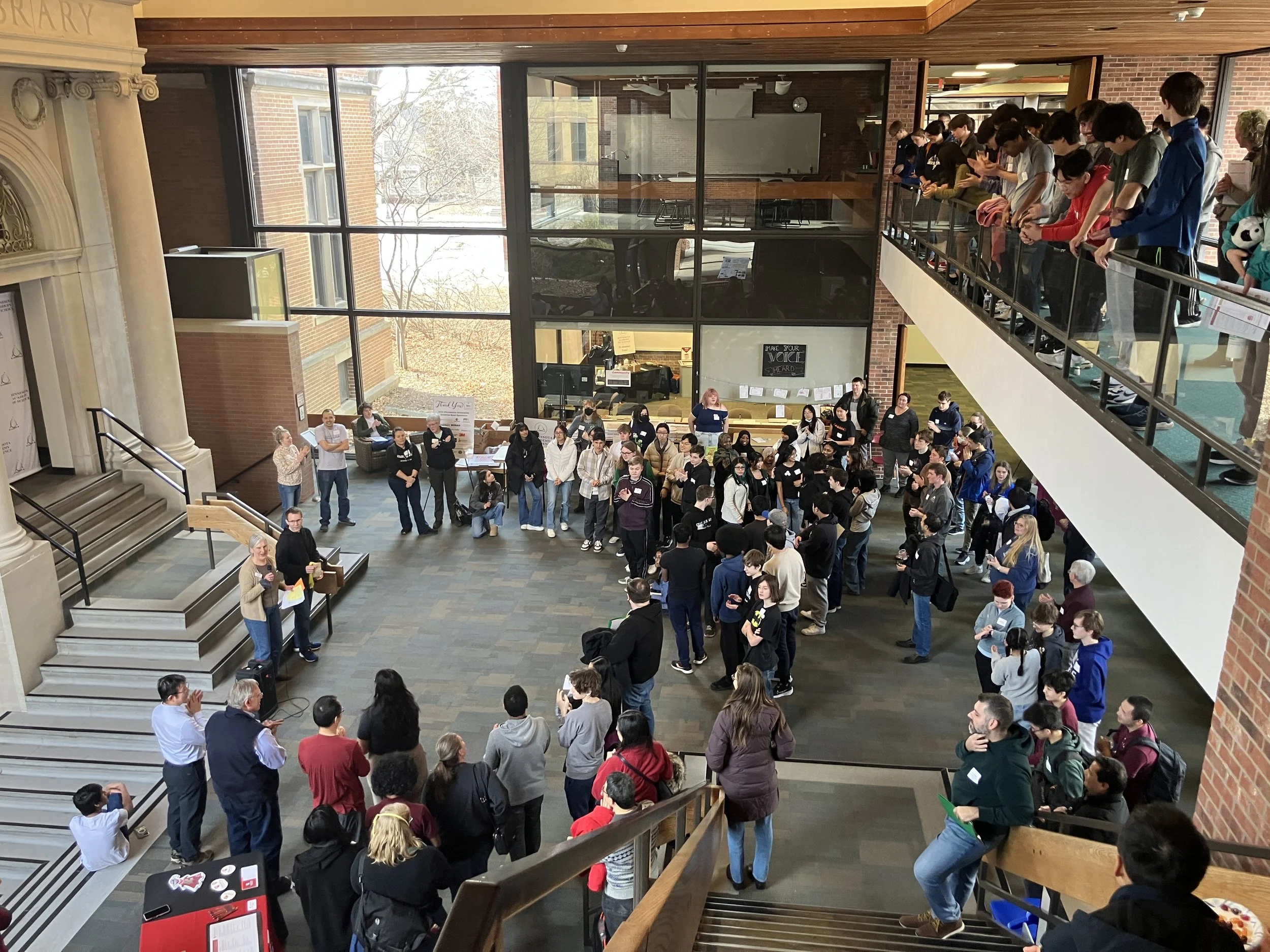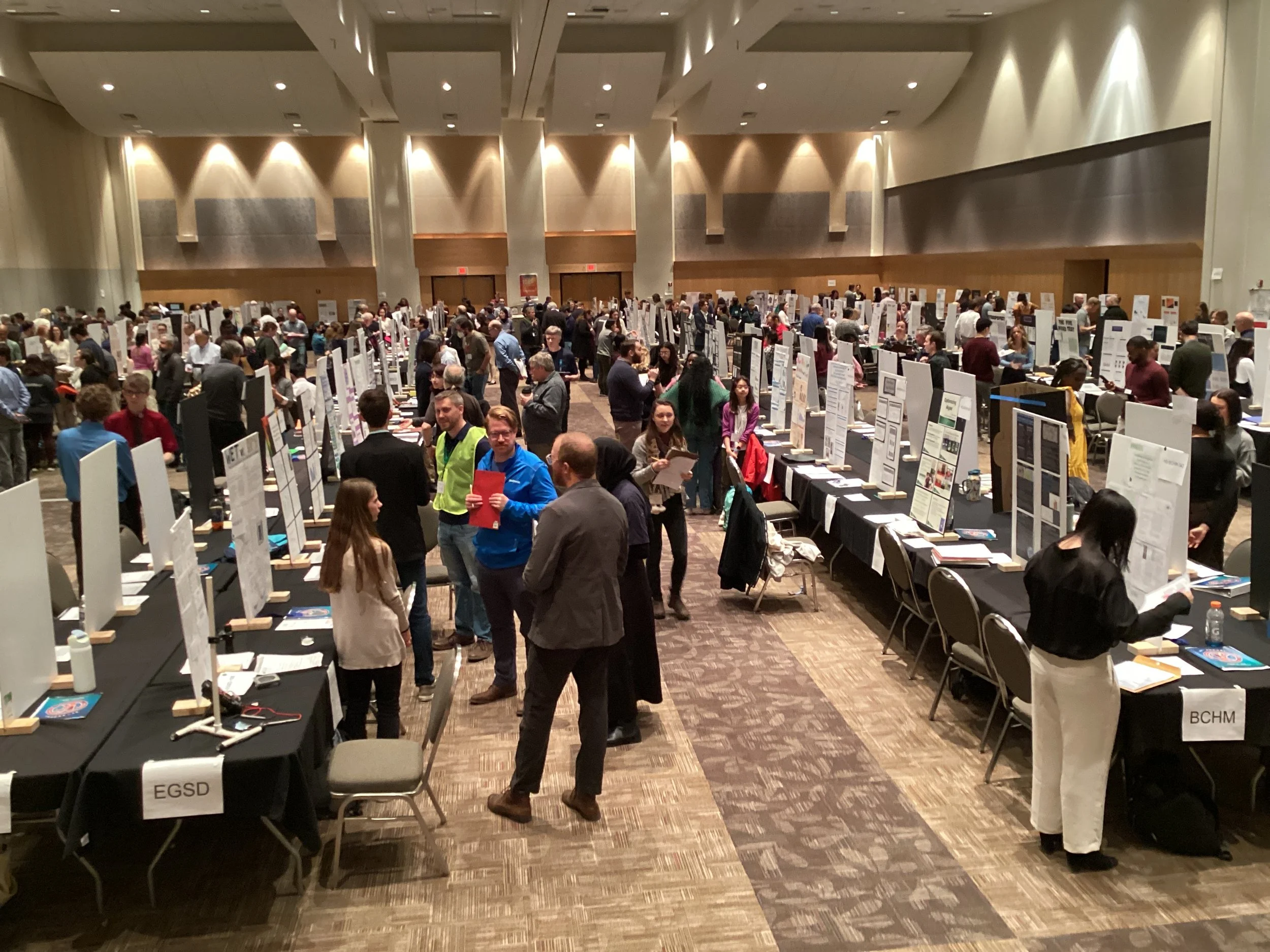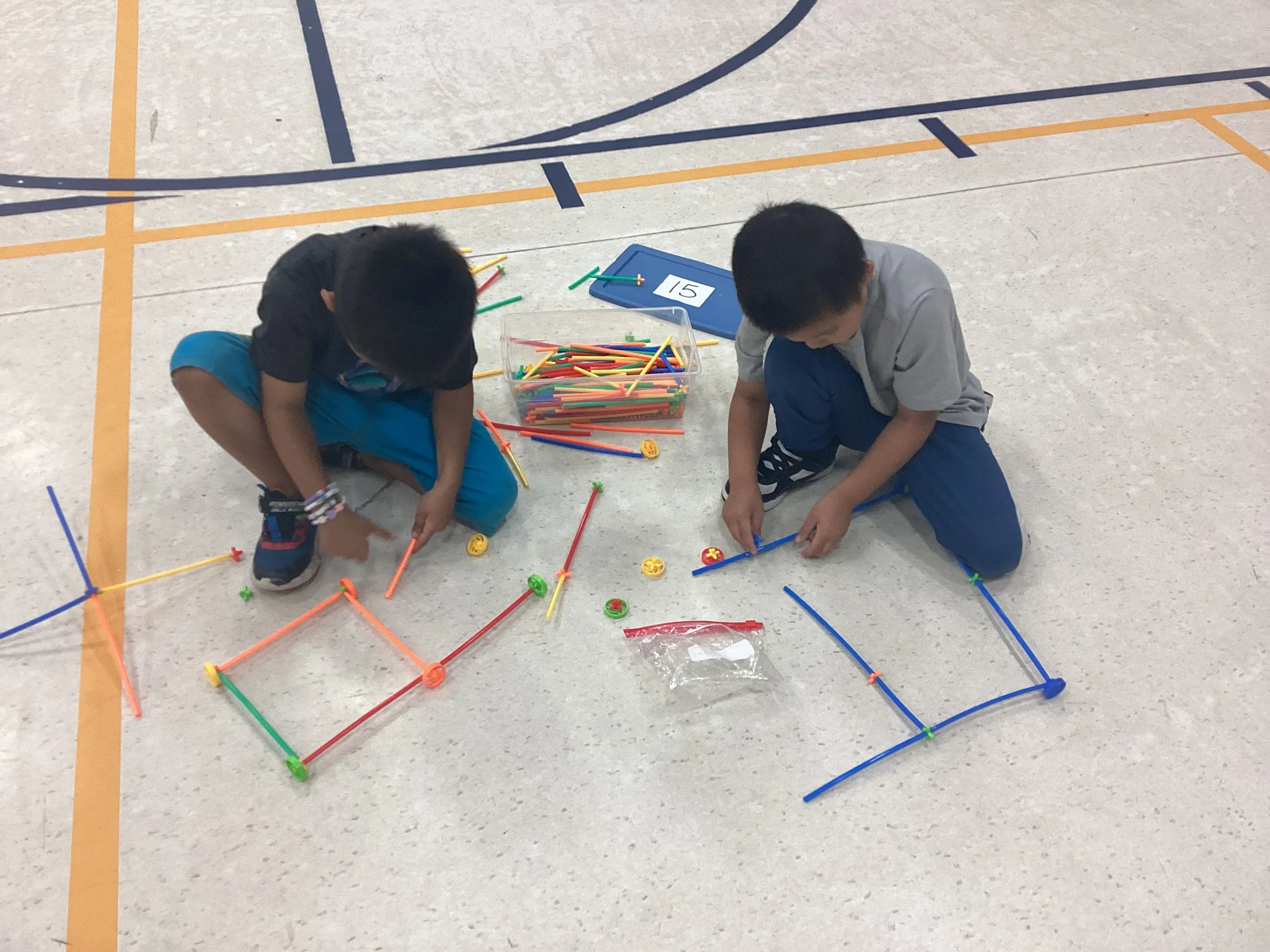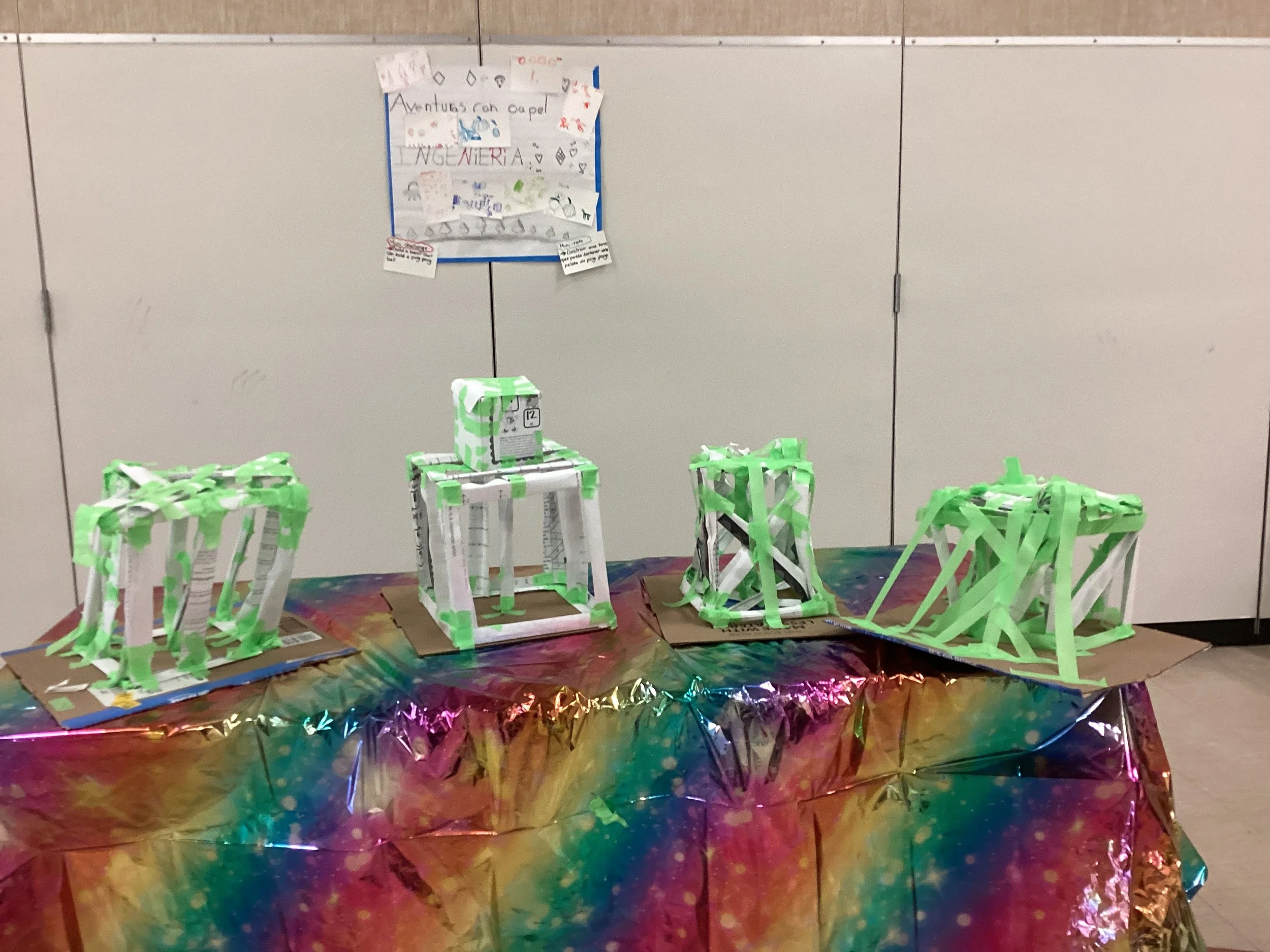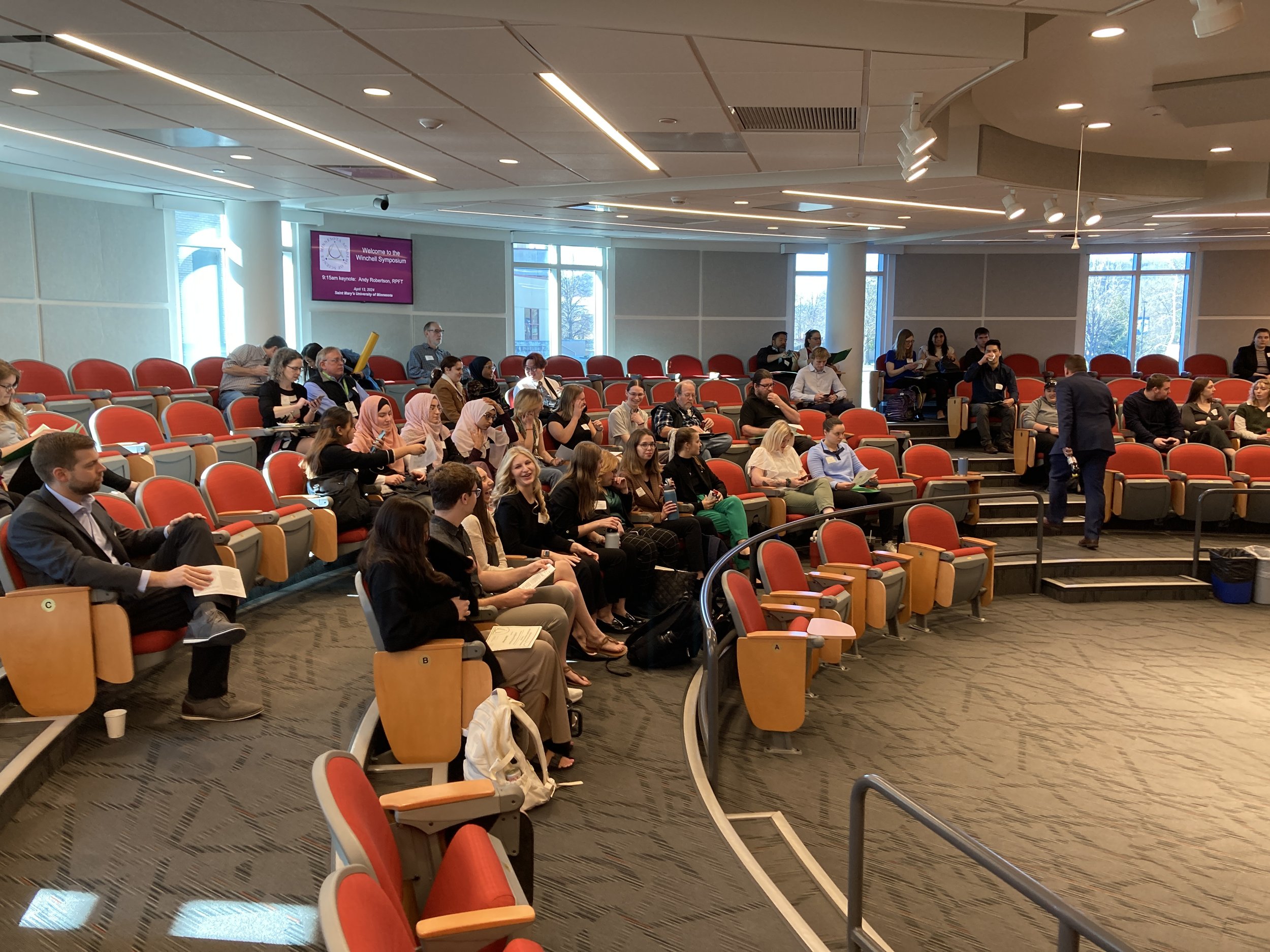FOR IMMEDIATE RELEASE
UNDERGRADUATES FROM ACROSS MINNESOTA AND WISCONSIN PRESENT ORIGINAL STEM RESEARCH
Symposium keynote explains how college students around the world are helping discover new antibiotics
April 27, 2019 (White Bear Lake, MN)-–Nearly 150 students, faculty, community members, and volunteers gathered at Century College to celebrate undergraduate scientific research at the 32nd annual Winchell Undergraduate Research Symposium. The symposium is organized by the Minnesota Academy of Science (MAS) each year and supported by colleges across Minnesota.
More than 80 students representing 17 public and private colleges in Minnesota and Wisconsin presented their original research in oral and poster sessions, networked with peers, and received feedback and recognition. Most student projects described research in chemistry or biochemistry and cellular or molecular biology. Additional topics included environmental science, neuroscience, statistics, and political science. Faculty judges representing nine institutions selected three oral presentations and nine posters for special recognition. (See list below and Awards for more information.) MAS posted all student abstracts in an annual online Journal of Abstracts.
Symposium attendees explored current trends in science and science education through breakout sessions and a keynote address given by Dr. Jo Handelsman, Director of the Wisconsin Institute for Discovery at the University of Wisconsin—Madison. Handelsman spoke about her initiative to retain students interested in majoring in STEM by engaging them in research efforts to identify new antibiotics. “Students are not biased about how things have always been done,” she said, explaining how college students may be able to help solve the global health crisis of antibiotic-resistant infections. Her “Tiny Earth Network” has been adopted in more than 200 schools around the world, where more than 10,000 college students are searching for new antibiotics in soil samples.
In a small group discussion following her keynote, Handlesman spoke to students about her time working in the White House as a science adviser to President Obama during the Ebola outbreak. She then met with faculty to discuss bias in science and science education. Other breakout sessions included a 3D bioprinting demonstration, a panel discussion with STEM graduate students, and a panel discussion with STEM industry professionals.
PARTICIPATING COLLEGES
Colleges represented at the 2019 Winchell Symposium (and total number of student presenters) with names of students who received special recognition:
Bethel University (7)
Carleton College (3) - Luis Alvarez
Concordia University - St. Paul (6) - Nicholas Ziebell
Crown College (2)
Hamline University (2) - Luis Balderrama
Macalester College (1) - Elizabeth Emanuel
Minneapolis College (1)
North Hennepin Community College (1) - Anh Huynh
St. Cloud State University (1)
Rochester Community and Technical College (2)
St. Catherine University (4) - Megan Moberg and Alexandra Schmeltzer
St. Olaf College (19) - Jesse Elder, Shannon Moore, Isaac Slagel, and Jack Welsh
University of Minnesota - Twin Cities (1)
University of Northwestern - St. Paul (4)
University of St Thomas (16) - Martina Golden and Rylie McDonell
University of Wisconsin - River Falls (7)
Winona State University (5) - Bethany Palen
The 2019 Winchell Symposium was hosted by Century College and made possible through the generous support of the American Chemical Society, the American Heart Association, and an anonymous donor in memory of M.I. (Buzz) Harrigan, as well as the following institutions and departments: Bethel University, Natural and Behavioral Sciences; Carleton College, Department of Chemistry; Hamline University, Departments of Chemistry and Biology; Macalester College, Department of Biology; St. Catherine University, School of Humanities, Arts, and Sciences; St. Olaf College, Natural Sciences and Math; University of Minnesota, Department of Psychology; University of Minnesota—Duluth, Department of Pharmacy Practice and Pharmaceutical Sciences; University of Northwestern—St. Paul, Department of Biology and Biochemistry; University of St. Thomas, Departments of Biology and Chemistry and the Undergraduate Research Opportunities Program.




